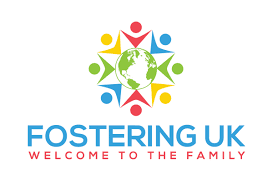Need to know about Private Fostering
Private fostering is when a foster carer, who is neither a parent nor a "close relative" (such as a great aunt, cousin, mom's friend, or a neighbor), cares for a child or young person for at least 28 days in their home who is under 16 (or under 18 if the child or young person is disabled). Included are kids who stay in residential schools for longer than two weeks during the break from school.
in accordance with UK fostering The care of a child under the age of 16 by a person who is not their parent or a close family, or under the age of 18 if they are disabled, is provided through private fostering agencies. This privacy agreement, intended to last at least 28 days, was approved by a parent and a carer.
A private fostering arrangement with neighbors and friends may benefit the foster family.
There are a number of circumstances that could prevent a parent from providing either short-term or long-term care for their own child. Any youngster who spends any amount of time away from their parents may be in danger. Then, it is our shared responsibility to make sure that every kid who has been privately fostered receives alternative care that satisfies their needs for welfare and security.
The following frequently happens to children who are privately fostered:
- Young people who travel with their families or parents
- If the parent has a persistent disease, is in jail, or is otherwise ill
- Kids whose parents go to school or work in the UK
- Refugees and those looking for sanctuary
- Trafficking children
- Children in the area who live separate from their families and occasionally don't have a stable home due to parental separation or divorce.
- Teenagers and young adults
- School-aged children who study languages
- Holidays away from home for independent boarders
- Adopted children who have been brought home from abroad.
The Council is mandated by law to protect children and young people's welfare and safety in this case. You must notify the Council if you enter into a private fostering arrangement in accordance with the Children Act.
In some circumstances, the Children's Services division of the local council needs to be notified. To make sure the child and carer are safe, to do background checks, and to make sure assistance is being given, a social worker will visit the home and speak with the carer and the child.
These materials are available to private foster parents:
- Assistance with benefits and the possibility of money for some basic things
- Visit the local council website for more information on private fostering agencies.
- Families that have split up can reunite with advice and assistance with parenting.
The child's parents should give you as much information about the child as they can, Before becoming a foster carer you should know the child's health, academic achievements, religious and cultural requirements, eating habits, interests, and likes and dislikes. This will make it easier for you to look after the child and comprehend him or her.
UK Fostering provides assistance to both foster parents and foster children.




Comments
Post a Comment